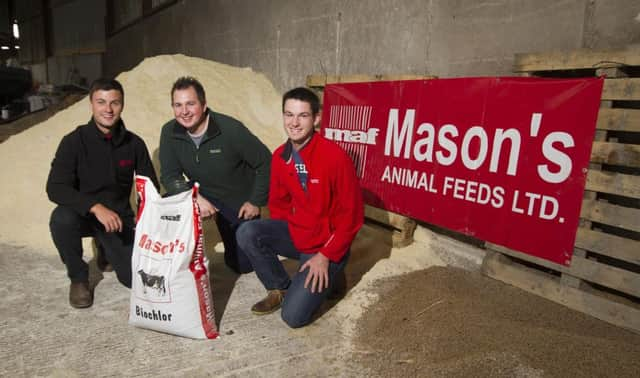Dry cows must be fed low potash forages, Haffey farm walk told


“Not taking this approach predisposes cows to a host of clinical and sub-clinical diseases post calving, including Milk Fevers and Displaced Abomasums,” said Dr Neil Michael.
“Cows will also be slower to achieve peak milk post calving, all of which adds up to a reduction on the cow’s ability to drive profit within the overall business.”
Advertisement
Advertisement
Dr Michael is senior business manager with Arm and Hammer Nutrition. He was the key speaker at the recent Dry Cow Management Farm Walk, hosted by the Haffey family on their Lurgan. In excess of 60 milk producers attended the event, which was hosted by Mason’s Animal Feeds.
Dr Michael continued: “I would strongly urge all dairy farmers to have the forages they feed their dry cows specifically analysed for potassium levels.
“In theory, producers should grow their own bespoke dry cow forages. But I am fully aware this is not a feasible option.
“In the US, many dairy farmers buy-in straw, which is then included in their dry cow rations. But even in these instances most producers will have these forages tested.”
Advertisement
Advertisement
Dr Michael admitted that grass silages grown in Northern Ireland can be inherently high in potash.
“This re-enforces the need for farmers to have the forages available to them analysed.”
Dr Michael highlighted the need for farmers to maintain a critical management eye ove their cows in the three-week period up to calving.
He also confirmed the role that can be played by Bio-Chlor mineral packages to facilitate this.
Advertisement
Advertisement
“Proper mineral balances are crucial in priming cows to calve down properly. And Bio-Chlor technology works to make this a reality. This is a proven approach to dry cow management, which has been continually refined over a number of years.
The team at Mason’s Animal Feeds, in attendance at the event, further profiled the benefit of feeding Bio-Chlor Down Calver Nuts. Manufactured specifically by the company, they have a proven track record in allowing dairy cows to calve down without problems and are ready to produce milk in the most efficient and effective way possible.
The Haffey family has been feeding Bio-Chlor nuts to all their pre calvers for the past two years.
They work by enhancing the bacterial and other microbial populations in the cow’s rumen.
Advertisement
Advertisement
“The theory is very simple,” Mason’s managing director Colin Purdy explained.
“By identifying the factors limiting bacterial growth in the rumen, it is feasible to improve the efficiency of milk production and feed conversion: in other words more output per unit of feed.”
Colin pointed out that the Down Calver Nut is fed at a rate of 4 kilos per day during the three weeks leading up to calving.
“It is offered with grass silage or, if available, 50% whole crop and 50% grass silage plus straw to appetite. Freshly calved cows and heifers reach peak yields much more quickly. These are sustained longer, resulting in greater overall lactation yield compared to those not receiving the Bio-Chlor close up pre-calving nut.
Advertisement
Advertisement
“In addition to improved milk yields overall herd health is significantly improved, with much fewer displaced abomasums, milk fevers and retained placentas plus significantly improved fertility reported by those herdowners using the Bio-Chlor approach to dry cow management.
For further information, contact Colin Purdy on 079808 65059.